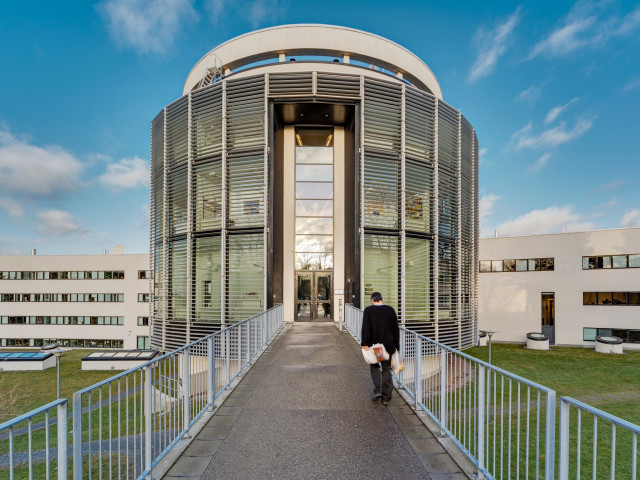Thermodynamics: The laws of thermodynamics. Temperature and thermometry. The ideal gas law. Gas power cycles. Refrigerators and heat pumps. Carnot cycles. Entropy and absolute temperature. Thermal and chemical equilibrium. Phase diagrams and phase transitions. Thermodynamic potentials. Thermodynamic limitations. Waves: Mechanic and electromagnetic waves. Reflection, refraction, superposition and polarization. Interference. Diffraction.
IF1612 Applied Physics, Thermodynamics and Waves 7.5 credits
This course has been discontinued.
Decision to discontinue this course:
No information inserted
Information per course offering
Course offerings are missing for current or upcoming semesters.
Course syllabus as PDF
Please note: all information from the Course syllabus is available on this page in an accessible format.
Course syllabus IF1612 (Autumn 2008–)Content and learning outcomes
Course contents
Intended learning outcomes
The course gives an introduction to two most important areas of physics: 1. Thermodynamics and 2. Waves After the course, the student should be able to:
- Use basic concepts of thermodynamics and waves.- Apply the ideal gas law and related gas theory.
- Understand the differences between mechanical and electromagnetic waves.
- Utilize basic theory to solve problems.
- Determine if an answer is within the physical limits.
- Evaluate, analyze and present laboratory work in a written report.
Literature and preparations
Specific prerequisites
Completed upper secondary education including documented proficiency in Swedish corresponding to Swedish B and English corresponding to English A. For students who received/will receive their final school grades after 31 December 2009, there is an additional entry requirement for mathematics as follows: documented proficiency in mathematics corresponding to Mathematics A. And the specific requirements of mathematics, physics and chemistry corresponding to Mathematics D, Physics B and Chemistry A.
Literature
Våglära och optik, G. Jönsson och E. NilssonUpplaga: 3 Förlag: Teach Support År: 2002ISBN: 91-972499-8-X Energilära: Grundläggande termodynamik, O. Beckman, G. Grimvall, B. Kjöllerström och T. SundströmUpplaga: 4 Förlag: Liber Ab År: 2005ISBN: 91-47-05218-X
Examination and completion
Grading scale
Examination
- TEN1 - Examination, 6.0 credits, grading scale: A, B, C, D, E, FX, F
- LAB1 - Laboratory Work, 1.5 credits, grading scale: P, F
Based on recommendation from KTH’s coordinator for disabilities, the examiner will decide how to adapt an examination for students with documented disability.
The examiner may apply another examination format when re-examining individual students.
If the course is discontinued, students may request to be examined during the following two academic years.
Other requirements for final grade
Written examination (TEN1: 6 ECTS credits) Laboratory work, including written reports (LAB1: 1.5 ECTS credits)
Examiner
Ethical approach
- All members of a group are responsible for the group's work.
- In any assessment, every student shall honestly disclose any help received and sources used.
- In an oral assessment, every student shall be able to present and answer questions about the entire assignment and solution.